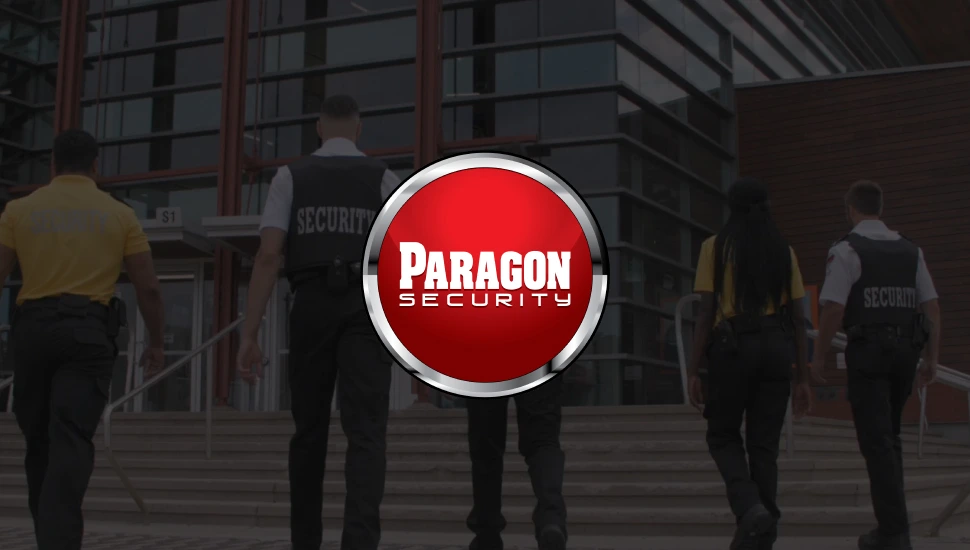Security has become a top priority for individuals and businesses alike. From protecting valuable assets to ensuring the safety of guests, security professionals play an essential role in today’s world. However, not all security roles are created equal – there are certain positions that require a Security Guard License. Obtaining this license requires training and certification, but it opens up doors to a variety of exciting career opportunities. In this article, we will explore seven different roles that require a Security Guard License – from law enforcement officers to hospitality security agents – and why getting your license can be beneficial for your career growth as a security professional!
Why Get Your Security License
Obtaining a Security Guard License can be an excellent way to advance your career as a security professional. While not all security roles require this license, having one can offer numerous benefits.
First and foremost, getting your Security Guard License shows that you have completed the necessary training and certification required to work in certain positions. It demonstrates your commitment to professionalism and safety standards.
Moreover, having a license opens up doors to several different job opportunities in various industries beyond traditional security companies such as retail stores, hotels or hospitals. These industries often employ their own security personnel that must meet provincial licensing requirements.
Additionally, many companies require individuals working in specific industries – such as hospitality or correctional facilities – to obtain a Security Guard License before they can work legally. So obtaining it is not just optional but mandatory!
Obtaining a Security Guard License shows potential employers that you are dedicated and qualified for high-responsibility positions that demand trained professionals who will take care of people’s lives and assets with the utmost responsibility!
Security Guard
Security guards are the most common type of security professional, and they play a vital role in maintaining safety and order in various settings. They work in commercial, retail stores, hospitals, schools, banks, logistics, manufacturing, museums, government, and more.
Their responsibilities include monitoring surveillance cameras, patrolling premises to prevent theft or vandalism, and checking the identification of visitors or employees entering the building. They also respond to alarms or emergency situations such as fires or medical emergencies.
Becoming a security guard requires completing 40 hours Basic Security Training that covers topics such as legal aspects of security services ethics and professionalism among others. After completing the course successfully, one has to take an exam administered by state agencies before getting certified.
A good security guard should have excellent observation skills with attention to detail, communication skills both verbal and written, strong problem-solving abilities, and physical fitness for long periods on foot patrol. Above all else a great deal of integrity is required from them since they often control access to sensitive areas.

Intelligence Officer
An Intelligence Officer, also known as an Intelligence Analyst or a Counterintelligence Agent, is responsible for gathering and analyzing information to identify potential threats to national security. These professionals work in both the public and private sectors, including law enforcement agencies, intelligence organizations, and corporations.
To become an Intelligence Officer, you need to have excellent analytical skills and attention to detail. You must be able to gather information from various sources such as social media platforms, news articles, government databases, human sources etc. This requires extensive training in research methodology techniques that intelligence officers use.
Intelligence Officers need a security guard license because they often deal with sensitive information that could compromise national security if it falls into the wrong hands. They must also follow protocols concerning storing or sharing classified materials while maintaining confidentiality at all times.
Being an Intelligence Officer is challenging and rewarding as these professionals play a crucial role in safeguarding national security interests by providing accurate analysis of collected data which ultimately helps prevent criminal activities before they happen.
Night Guest Services Manager
A Night Guest Services Manager is responsible for ensuring the safety and security of guests in hotels, resorts or similar establishments during night-time hours. They supervise a team of security guards and other staff to maintain order and respond promptly to any emergency situations that may arise.
To become a Night Guest Services Manager, you need to obtain a security guard license by completing the necessary training requirements. This includes learning about fire safety procedures, crowd control techniques and conflict resolution skills.
The role requires excellent communication skills as you will be interacting with guests, staff members and law enforcement agencies on a regular basis. You should have the ability to think critically under pressure and make informed decisions quickly when dealing with unexpected situations.
As a Night Guest Services Manager, your primary responsibility is to ensure all guests feel safe while staying at your establishment. You must ensure that there is adequate staffing in place throughout the night shift so that all areas of the property are monitored effectively.
Asset Protection Officer
An Asset Protection Officer is a security professional who focuses on protecting valuable assets such as inventory, equipment, and property. This role requires a security guard license to ensure proper training in surveillance techniques, loss prevention strategies, and emergency response protocols to name only a few topics.
Asset Protection Officers may work in various industries including retail, hospitality, and transportation where they monitor security footage or conduct physical patrols to identify potential threats. They also investigate incidents of theft or vandalism and work with law enforcement agencies when necessary.
The job of an Asset Protection Officer can be physically demanding as it involves standing for long periods of time and responding quickly to emergencies. Officers must possess excellent communication skills to interact with customers and colleagues effectively while maintaining a calm demeanour during high-pressure situations.
Hospitality Security Agent
A Hospitality Security Agent plays a crucial role in ensuring the safety and security of guests, employees, and property in hotels, resorts and other types of accommodation. They are responsible for monitoring all activities within the hotel premises to prevent any incidents that may harm individuals or damage assets.
One of their main responsibilities is to control access points such as entrances, exits and elevators. This means they must always be alert, identifying potential threats like unauthorized persons entering restricted areas or suspicious packages left unattended.
Hospitality security agents also need to have excellent communication skills since they interact with guests frequently. They should be able to handle conflicts calmly while providing assistance when required. Moreover, they should also know how to use surveillance equipment effectively so that any unusual activity can be detected immediately.
To become a hospitality security agent, one needs proper training on topics such as guest privacy laws, crisis management techniques and emergency response protocols. This knowledge combined with professional experience in handling similar situations makes them valuable additions for enhancing the reputation of the establishment through customer satisfaction by keeping it secure from internal or external dangers.

Law Enforcement Officer
The role of a Law Enforcement Officer is one that requires extensive training and qualifications. These individuals are responsible for upholding the law, protecting citizens, and preventing crime in their jurisdictions.
To become a Law Enforcement Officer, one must first obtain a security guard license and complete additional training specific to law enforcement. This includes courses on criminal law, investigation techniques, firearms handling, defensive tactics, and more.
Once qualified, Law Enforcement Officers can work in various capacities such as patrol officers, detectives or investigators. They may specialize in areas such as narcotics investigations or human trafficking prevention. Being a Law Enforcement Officer involves much responsibility but it is an essential role within society which helps maintain order while ensuring safety for everyone involved.
Correctional Officer
A Correctional Officer is a security professional who works in a prison or jail, ensuring the safety and security of inmates, visitors, and staff. These officers are responsible for maintaining order within the facility and enforcing rules and regulations.
Working as a Correctional Officer requires extensive training and education to prepare for this challenging job. Individuals must obtain their security guard license and undergo specialized training to work in a correctional setting.
The role of a Correctional Officer can be physically demanding, requiring individuals to have excellent physical fitness, endurance, and strength. They must also possess strong communication skills to interact with inmates effectively. They typically work long hours on rotating shifts that may include weekends or holidays. The job can be stressful at times due to dealing with difficult situations involving violent offenders or emotionally unstable individuals.
Despite its challenges, working as a Correctional Officer offers many rewards such as job stability, competitive salaries, benefits packages, retirement plans, and career advancement opportunities within the Department of Corrections system.
If you’re looking for an exciting career as a security professional where you can make meaningful contributions by protecting society from dangerous criminals then becoming a certified Correction Officer might just be right up your alley!
So, What’s Your Next Move?
Obtaining a security guard license is beneficial not only for those looking to start a career as a security professional but also for those in related fields such as law enforcement and hospitality. With the rise of crime rates and global threats, there is an increased demand for trained and licensed security personnel.
Whether you’re interested in protecting people or assets, working with intelligence agencies or managing guest services at night, there are many opportunities available to individuals who hold a valid security guard license.
You can take on any of these seven roles requiring a security guard license by completing the required training and meeting provincial-specific licensing requirements. So if you’re considering entering this field or transitioning from another related field like law enforcement or military service – now would be an ideal time to get started!
If you are ready to jumpstart your career in security, check out our careers page.
Join a booming industry! With ten years as one of Canada’s Best Managed Companies, a place in the Hall of Fame of Canada’s Most Admired Corporate Cultures, being named Best Employer by Forbes Magazine for three years in a row, and winning the OSPA’s Outstanding Contract Security Company Award, Paragon is one of the fastest-growing companies across Canada. Be sure to follow and read Our Blog to learn more about Paragon and the exciting world of security.

